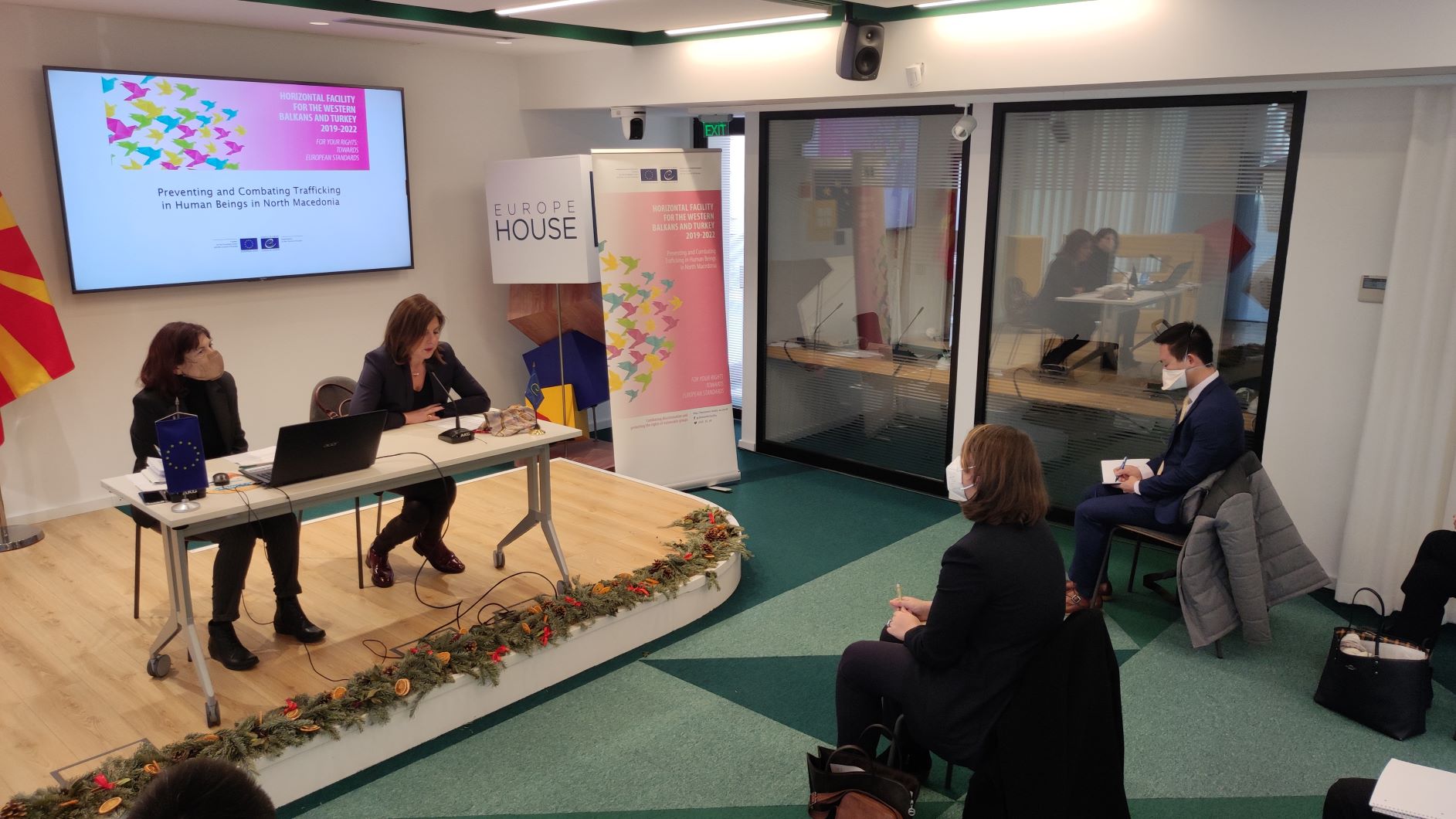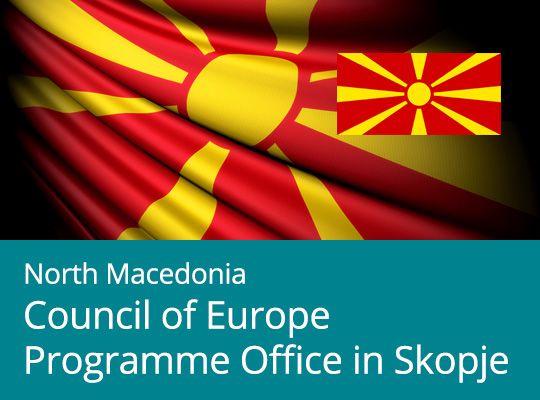A group of 12 international students from the International Human Rights Law Clinic at the Johns Hopkins University School of Advanced International Studies visited North Macedonia aiming to learn more about the application of the international anti-trafficking standards and norms, Under the project entitled “International Human Rights Law and Human Trafficking: The Case of North Macedonia”, the students are receiving hands-on experience by engaging with practitioners, Government and NGO representatives in the selected country for the case study.
“North Macedonia was selected as a country committed to the human rights principles, which has been already implementing them” - said Professor Schneebaum who is accompanying the students in this visit, during the meeting with the Club of Female Members of Parliament (MPs). He clarified that the aim of this visit was to assess the impact of the human rights instruments in North Macedonia. Based on this field visit and desk research, the Human Rights Clinic will prepare a report on their findings, which should be published by this May.
The MP Snezana Kaleska-Vancova affirmed that the anti-trafficking legislation was drafted based on international standards. She underscored the importance of the state compensation law for victims of violent crimes, which is pending for adoption by the Parliament and the “non-punishment” clause for trafficking victims, enacted 3 years ago, which absolves trafficking victims from penalty for crimes connected with their status of victims.
The MP Gordana Siljanovska-Davkova spoke about the Constitutional guarantees against forced labour, protecting individual’s dignity and integrity. “Human rights protection is a never-ending story”-she said, referring to the new challenges and risks for human rights abuse.
The needs for effective prosecution and punishment of traffickers and for enabling compensation for trafficking victims were also mentioned. Students were curious to know if sufficient funds were allocated to the anti-trafficking activities, what was done to ensure professional independence of the anti-trafficking actors and to keep the “institutional memory”.
The Project Officer of the action on “Preventing and Combating Human Trafficking in North Macedonia” Jasmina Dimitrieva spoke about the outcomes and results of this action, while putting an emphasis on the gender-mainstreamed activities. She underlined that enabling trafficking victims to receive a compensation from a state scheme was important to strengthen their rights.
At the briefing session with the Council of Europe Programme Office in Skopje, the Head of Operations, Lejla Dervisagic spoke about the work of the Council of Europe in the fight against trafficking and its role as a standard-setting and monitoring organisation.
During this visit the students had an opportunity to ask questions and hear more about the CoE Convention on Action against Trafficking in Human Beings and its monitoring mechanism - the Group of Experts on Action against Trafficking in Human Beings (GRETA). They were also informed about the way the EU and Council of Europe Horizontal Facility II anti trafficking action in North Macedonia supports authorities in ensuring compliance with the above Convention and GRETA’s recommendations set out in their monitoring reports on North Macedonia.
The action on “Preventing and Combating Human Trafficking in North Macedonia” is part of the EU and Council of Europe programme “Horizontal Facility for the Western Balkans and Turkey II” aiming at assisting beneficiaries in the Western Balkans and Turkey to comply with the Council of Europe standards and European Union acquis in the framework of the enlargement process.




